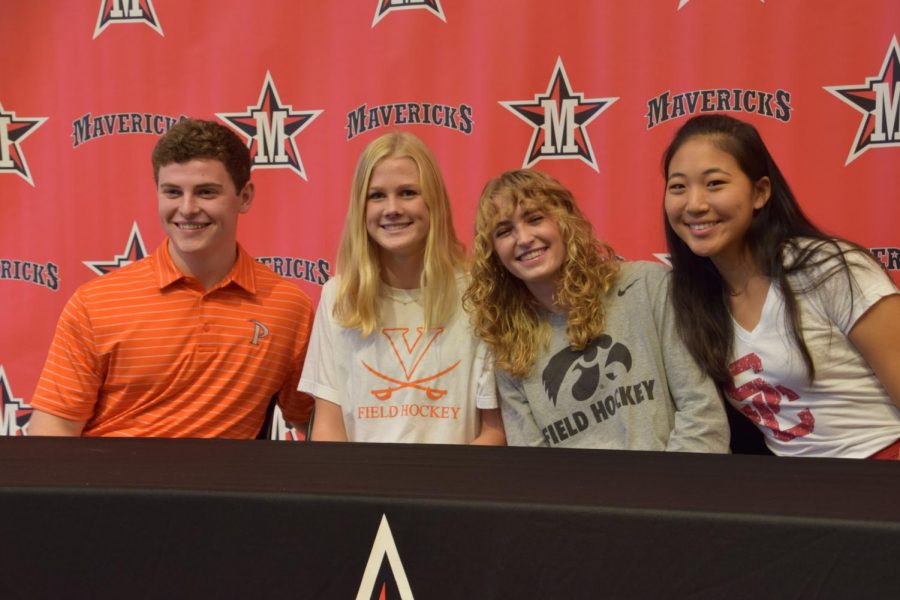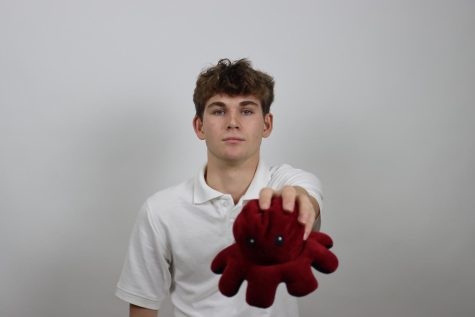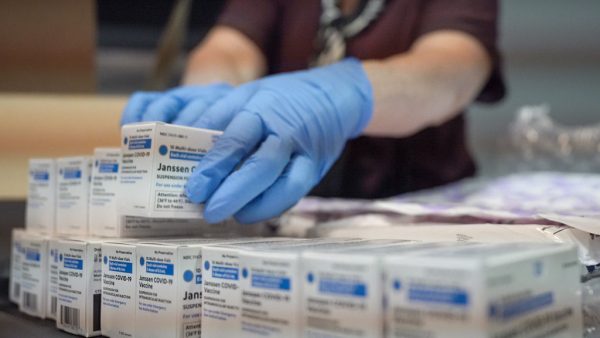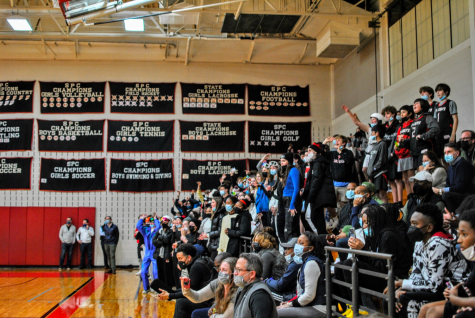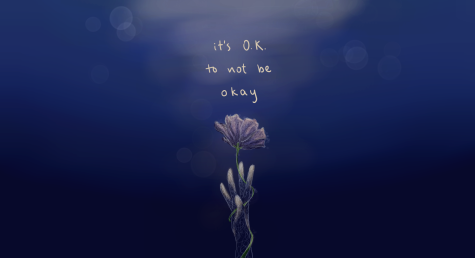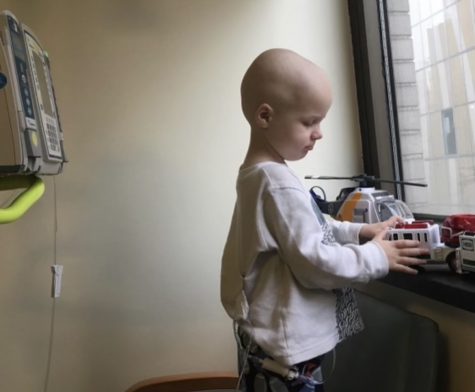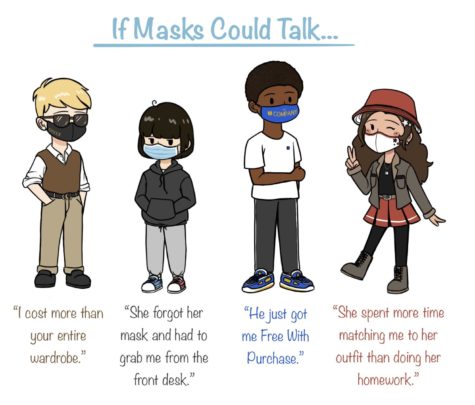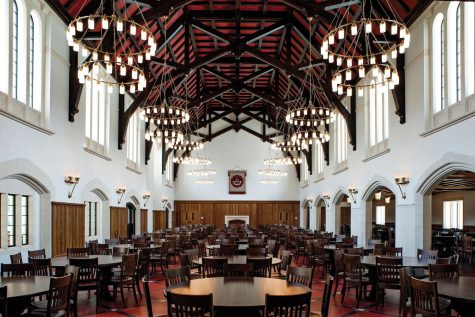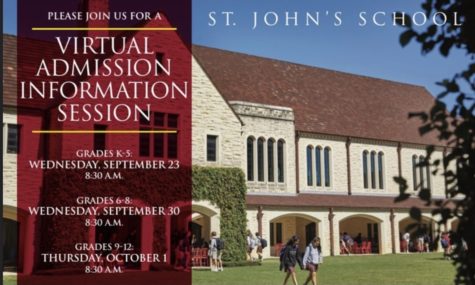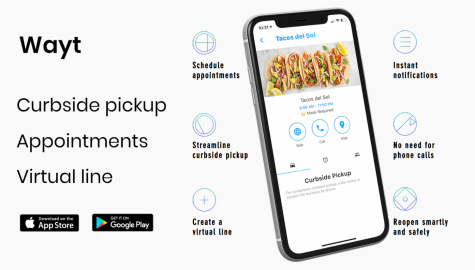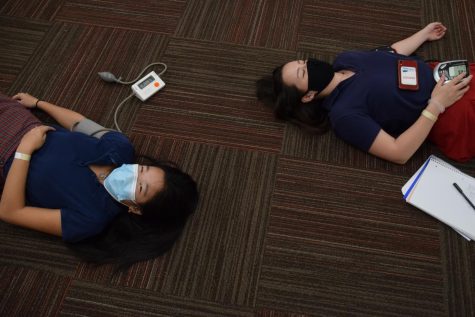Athletes, coaches adjust recruiting during COVID-19 pandemic
Last year, Beckett Vine, Mary VanLoh, Amelia Williams and Christine Wang celebrated National Signing Day.
When COVID-19 caused the cancellation of sports seasons and SPC, many athletes lost a key opportunity to interact with and prove themselves to college coaches. Since the start of the pandemic, the NCAA has issued a “dead period,” during which coaches can neither meet in-person with athletes for campus visits nor attend high school games. That period has now been extended to April 15, which will mark a year without in-person meetings for recruiting.
“What’s discouraging internally is that I can’t reflect on the last time I counseled kids through a pandemic,” college counselor Kenley Turville said. “I was discouraged for the students that I work with that are fall athletes, especially the seniors.”
Some aspiring college athletes whose spring seasons were canceled still played on their club teams.
“We were lucky enough to have a club season, so we played all summer,” baseball player Katcher Halligan said. “Because there were no coaches at our games, it became a big deal for everyone’s parents to film and record highlights.”
What’s discouraging internally is that I can’t reflect on the last time I counseled kids through a pandemic.
— Kenley Turville
According to Athletic Recruiting Liaison and coach Kathy Halligan, while game footage is important, it does not compensate for the loss of in-person meetings.
“[Coaches] want to see firsthand how big or tall you are and how you interact with your team, and that’s what happens during an in-person contact or evaluation,” she said.
Student-athletes who compete in individual sports, such as track and field, only competed twice before the cancellation. While not running races and having no new film to send to colleges raises an issue, 5th year eligibility makes college recruitment even harder. There are fewer spots on Division I rosters because seniors are being granted another year of eligibility, lessening the need for new athletes on the team.
“Recruiting has already advanced over the years,” coach Halligan said. “The majority of athletes recruited used to be your junior and senior athletes, now lots of junior and senior spots are already full.”
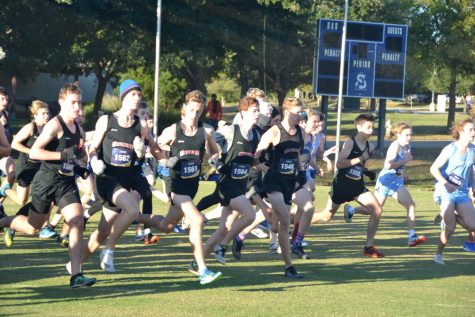
Roughly 2% of high school athletes go on to play DI collegiate sports. With the pandemic and its consequences, that percentage may be decreasing.
While the pandemic has brought discouraging effects, SJS student-athletes are still perfecting their craft.
Emmanuel Sgouros, captain of the cross-country team, averaged 65 miles per week in the summer, running in Crete.
“You have to remember why you’re doing it and what your big-picture goals are,” Sgouros said. “Use that to keep yourself running and getting out there everyday. It’s not easy — some days, you might not want to do it — but you just have to force yourself to do it.”
Earlier this fall, Sgouros’s coach set up a time trial for him in which he ran a 3200m in 9:33, a personal best that would have been a school record if the event had been sanctioned.
When the Southwest Preparatory Conference canceled the fall season on Aug. 21, standout SJS athletes had to prepare themselves for an unusual recruiting process.
“It was a little bit easier to deal with last year for track because I thought COVID would be over by cross-country season,” Sguoros said. “It was difficult to know that cross country SPC was going to get canceled. I really wanted to win SPC individually and lead the team to a good finish.”
Coaches at every level in the NCAA have become very creative and resourceful in their recruiting. — Kathy Halligan
While the lack of games and meets this fall and spring has made recruitment tougher, according to SJS athletes, there were some perks to quarantine.
“I’ve been able to focus on more strength stuff, weight training, and skill specific training,” sophomore volleyball player Margot Manning said. “Off-time is good. Your body needs to recover, and you get to focus on the things you normally would not be able to focus on in a normal season.”
According to Coach Halligan, with the NCAA DI dead period being extended to April 15th, 2021, coaches are relying heavily on social media, scouting services, and word-of-mouth to scope out new talent.
“Coaches at every level in the NCAA have become very creative and resourceful in their recruiting,” Halligan said.
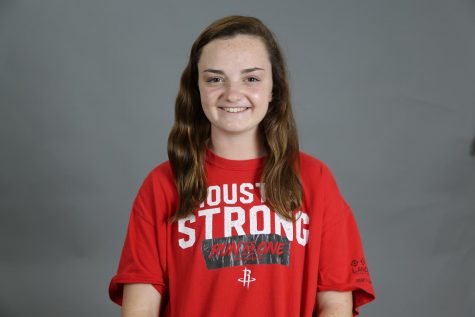
Claire Seinsheimer is a senior, and this is her third year on The Review.



